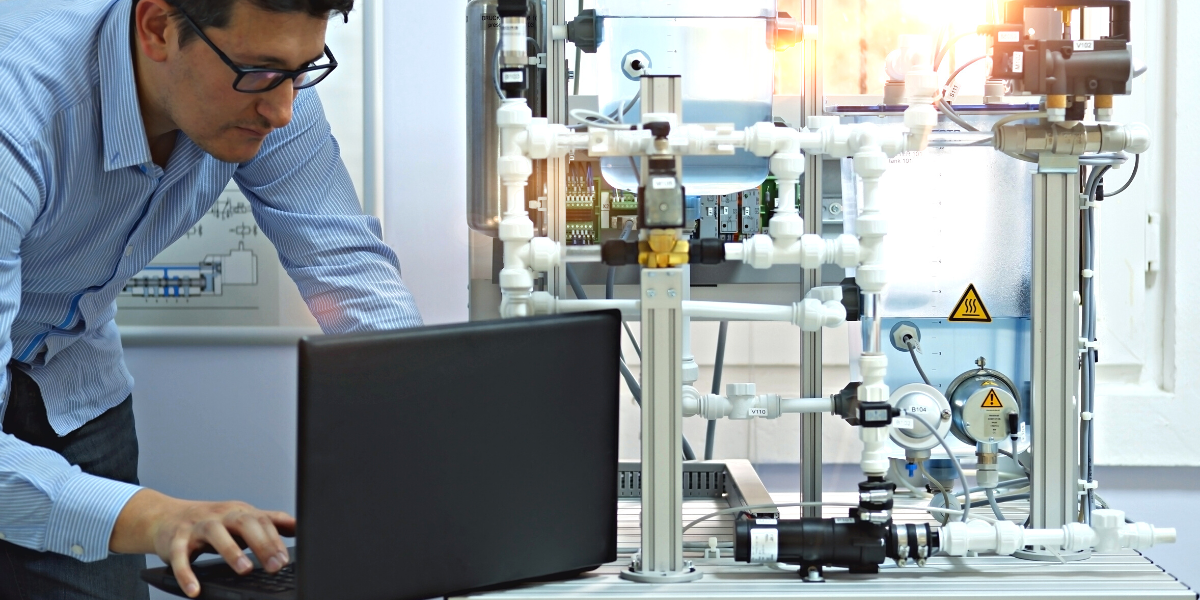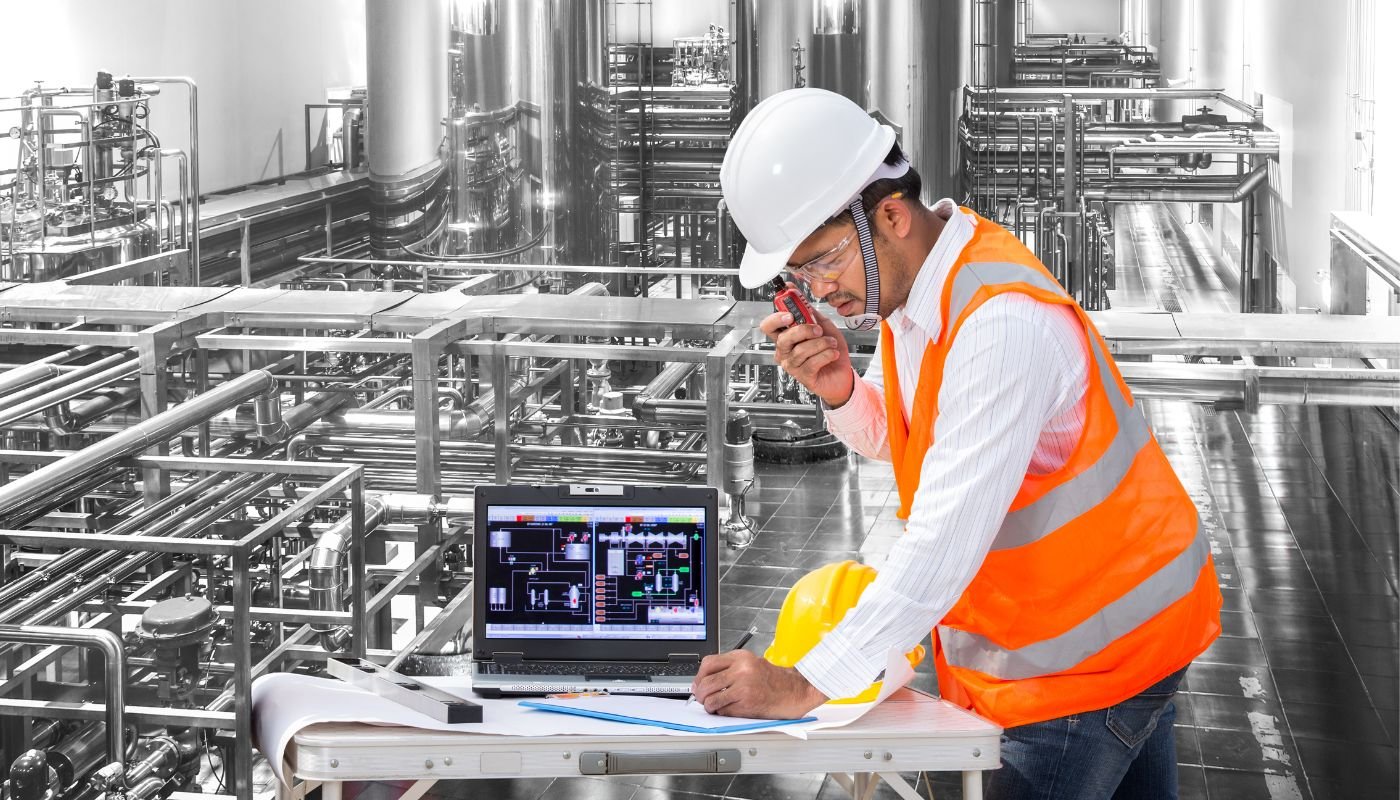1 min read
IoT for Industrial Automation
The Internet of Things (IoT) is providing a major boost to the automation sector. Industrial automation firms that employ IoT solutions can benefit...
5 min read
![]() The InCentrik Team
Oct 27, 2023 4:59:00 PM
The InCentrik Team
Oct 27, 2023 4:59:00 PM

Navigating the intricate landscape of industrial automation can be a daunting task, yet it's crucial for staying competitive in today's rapidly evolving technological world. From PLC programming to various types of automation control systems, this comprehensive resource aims to demystify these complex topics.
Whether you're in New Orleans, LA, or on the other side of the world, the insights presented here will equip you with the knowledge to make informed decisions about integrating automation into your industrial operations.

Industrial automation refers to the use of various control systems for operating equipment in industrial plants. This encompasses machinery on shop floors, switching on telephone networks, controls on power stations, and much more. The key purpose is to replace human intervention and manual commands with the use of powerful and intelligent machines.
In the simplest terms, industrial automation streamlines operations. Whether you're based in New Orleans, LA, or in an offshore manufacturing unit, automation is a global phenomenon that's improving efficiency, safety, and profitability.
Industrial automation is not a one-size-fits-all concept. Depending on your operational needs, different types of automation may be more applicable. Here are the four major types:
This involves the use of specialized equipment to automate specific tasks. It’s efficient but lacks flexibility. For example, automotive assembly lines often use fixed automation for mass production.
Suited for batch production processes, programmable automation allows you to reprogram machines and equipment to handle different products or tasks. PLC programming for industrial automation often falls under this category.
This type is ideal for environments where products are frequently changed. It offers a high level of customization but can be less efficient than other types of automation.
The most advanced type, CIM involves the integration of multiple processes and workflows, often managed through a centralized computer system.
Industrial automation tools are the backbone of any automated system. Here's a breakdown:
These collect data from the production environment. Types of sensors include temperature sensors, pressure sensors, and proximity sensors.
These are devices that perform actions based on the commands from control systems. Common types include motors and pumps.
These are the brains of the operation. Automation control systems like PLCs (Programmable Logic Controllers) govern the interaction between sensors and actuators.
This is the user interface that allows human operators to interact with the automated system.
Data and commands must be transmitted, often requiring secure and fast networks. Ethernet and Fieldbus are examples of networks used in industrial automation.
A PLC is essentially a ruggedized computer used for automating industrial processes. PLC programming for industrial automation is a specialized skill that enables engineers to design logic for PLCs to follow.
PLCs are robust and designed to withstand harsh industrial environments. They play a crucial role in collecting data, making real-time decisions, and controlling various types of equipment. Whether you are operating in New Orleans, LA, or in any global location, a PLC is often the heart of an automation control system.
IEC 61131-3 standard outlines the languages used for PLC programming, which include Ladder Diagram (LD), Structured Text (ST), and Function Block Diagram (FBD), among others.++
PLCs are designed for real-time applications. They can handle multiple input and output arrangements in real-time, giving them a significant edge in automation control systems. This real-time control allows industries to monitor and adjust production lines instantly, making operations not just faster but also safer.
One of the key advantages of PLCs in industrial automation is their scalability. You can start with a small system and scale up as needed, without massive overhauls. This makes PLC programming for industrial automation incredibly adaptable to a variety of industry needs.
In today's interconnected world, PLCs can be networked to function in a much more integrated way. Whether you are managing an industrial unit in New Orleans, LA, or coordinating between multiple global locations, PLCs can link up with other control systems and even data centers to allow for more sophisticated data analytics and operational oversight.
Automation control systems are only getting smarter, thanks to advancements in artificial intelligence (AI), machine learning, and data analytics. Companies are now looking at predictive and prescriptive maintenance models that preemptively address issues before they become problems.
In the context of geographic relevance, cities with burgeoning tech industries like New Orleans, LA, are likely to become hotspots for the next generation of automation technologies. This includes everything from AI-driven PLC programming for industrial automation to the use of augmented reality for machine maintenance.
As we explore the landscape of industrial automation, it's essential to ground ourselves with concrete examples. This will not only give you a better understanding of the subject but also illustrate its wide-ranging applications across various industries. Whether you're in New Orleans, LA, or anywhere else, you'll likely encounter these examples in some form.
Perhaps the most obvious example is in manufacturing plants where automation control systems are used for tasks like sorting, cutting, assembly, and even quality control. PLC programming for industrial automation is often at the heart of these operations.
Automation plays a significant role in both the manufacturing and testing of vehicles. From robot-assisted assembly lines to automated quality checks, the automotive sector has been a pioneer in adopting advanced automation technologies.
In the food production industry, automated systems are used for various tasks such as sorting, packaging, labeling, and quality control. Here, the focus is often on speed and sanitation, ensuring products are processed quickly and cleanly.
In energy production, especially in fields like oil and gas, automation technologies are used for drilling, refining, and distribution. Advanced PLC programming enables real-time monitoring and control of energy production facilities, ensuring safety and efficiency.
These examples illustrate the transformative impact of industrial automation across different sectors. If you're involved in any of these industries in New Orleans, LA, or any other part of the world, understanding the nuances of automation can be a game-changer for your operations. It underscores the importance of key elements such as PLC programming for industrial automation, sensors, actuators, and intelligent control systems in achieving operational excellence.
If there's one thing to take away from this comprehensive guide, it's that industrial automation is not just the future—it's here and now. Whether you're in New Orleans, LA, or any other part of the globe, mastering the essentials of industrial automation, from understanding PLC programming to the various types of automation control systems, is indispensable for staying competitive in today's industrial landscape.
When it comes to putting this knowledge into action, the expertise of a trusted partner can be invaluable. That's where InCentrik comes into play. Specializing in automation and controls services, InCentrik has the automation experience and technical know-how to bring your industrial operations to the next level.
So why not take the next step in your automation journey? Reach out to InCentrik today to explore how their services can drive efficiency, improve safety, and boost profitability for your organization.
PI System Monitoring with PI MD - PI MD is a system that helps administrators collect, organize and understand data from their infrastructure, PI system components and related applications.
What You Need to Know About The Integrated Remote Operations Center (iROC) - Integrated Remote Operations Center 'iROC' are becoming popular as organizations seek ways to improve efficiency and costs. Here's what you need to know.
Automation and Control Systems for LNG: Shifting ISO Tank Transloading - Explore how automation and control systems optimize LNG transloading, overcome logistical challenges, and ensure high-quality supply
![]() Leading the digital transformation in the manufacturing industry. We bring our customers value through automation, integration, data management, and business intelligence. We bridge the gap between what really goes on in your plant and the decision-making power you hold as an executive.
Leading the digital transformation in the manufacturing industry. We bring our customers value through automation, integration, data management, and business intelligence. We bridge the gap between what really goes on in your plant and the decision-making power you hold as an executive.
At InCentrik we automate our customers process systems, manage our customer's data (from any data source), make data available to everyone, and we bring business intelligence to the data in order for our customers to work more efficiently.

1 min read
The Internet of Things (IoT) is providing a major boost to the automation sector. Industrial automation firms that employ IoT solutions can benefit...

Today's discussion delves into how automation and control systems can navigate these challenges, optimizing the transloading process, and ensuring...

In today's competitive landscape, businesses need to find ways to operate more efficiently and effectively in order to stay ahead of the curve. By...